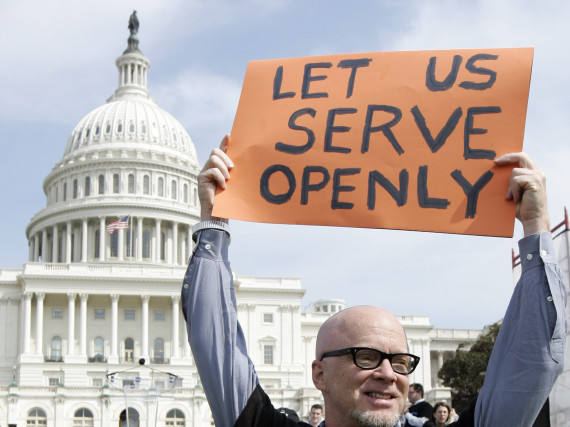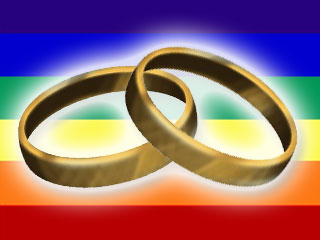The Problem with Equality: Short-Sighted Goals of the LGBT Movement

I am sure I have written this article before, countless times. I am, of course, not the only one. Writers have been penning their criticism toward “equality” for quite some time. It is my goal, nevertheless, to continue.
When I say “LGBT equality”, it is safe to assume that the first issue that comes to mind is the ability to marry. Marriage is the centerpiece of the American LGBT movement today and often at the forefront of mainstream media coverage. But, I must ask, why?
Of all possible issues, “marriage equality” has proven to be one of the most confusing and impractical campaigns we have seen in a long time.
To begin with, the state-by-state approach is expensive and unsustainable. Organizations spend millions on lobbying state legislatures and sometimes succeed. When they do celebrate a rare victory, reality sets in: there is no Federal recognition of your marriage; your marriage is only valid in certain states; your marriage remains vulnerable to reactionary referendums, and perhaps worst of all, your marriage remains vulnerable to the next legislative season where the moral crusaders will waste our time and resources undoing your marriage.
How is this sustainable?
A more effective approach toward LGBT rights would be concentrating on the Supreme Court, following the strategy executed when U.S racial integration of schools was our goal.
“Marriage” as the way to social inclusion is simply irrational, including for heterosexuals. In effect, it silences two important conversations surrounding healthcare and partner benefits, the two public policy reasons for many same-sex marriage advocates. Love should not concern the State, and it doesn't – you can marry anyone, anywhere if you are after a symbolic union with a significant other.
The bigger question is, however: why is marriage a potential solution for so many in order to gain healthcare coverage? The largest demographic of people without healthcare in the United States are single people. With a universal healthcare system people would not be rushing to the altar to acquire affordable access to healthcare.
The same logic applies to partner benefits, which in itself is a bizarre concept. I am a New Yorker; many of us have roommates, even after well-established careers. Cities are expensive and crowded, and even in less-populated places, we are running out of space. In these situations and more, social ties are forged beyond tradition. Why can’t life partners, who are not romantically involved, be entitled to tax breaks? Why can’t a lifelong friend visit your deathbed? Why is the ability to acquire much-needed benefits and civil rights based on something as unpredictable and unsustainable as a romantic relationship?
I want to make clear that I would never campaign against same-sex marriage. My point is that marriage is a short-sighted, completely unimaginative, not to mention expensive approach to gaining equitable rights. Society as a whole is moving away from marriage. Divorce is at an all-time high. People are waiting much longer to get married, if ever. The nuclear family as the model of society is changing rapidly. Advocating for more marriage policy, regardless of sexuality, is counterproductive to the movement of history.

One “victory” of the Equality movement was the repeal of “Don’t Ask, Don’t Tell”. Is it a coincidence the first place “equality” manifests is in the military? At a time where the United States’ strive for cultural and geopolitical hegemony is highly dependent on a masculinized military arm, this is not by accident. It is an impressive propaganda strategy to use while manufacturing support for our questionable foreign policy. What does sexuality have to do with nationalism and the military? Not long after the repeal, recruiters were going to LGBT Centers to welcome them into a system that could take their lives just as easily as a society that once, and still, drives them to suicide.
The fundamental problem with equality is that it seeks to condition LGBT people with systems of regulation and allegiance that house some of the most unpractical, damaging, and paradoxical elements in our society. I am sure we can focus on things that matter, like that fact that Transgender communities are completely excluded from the national political platform. Transgender people cannot get jobs, they are being raped in prisons that do not accept their gender, and they are terrorized in bathrooms and airports. Perhaps investing in education as opposed to lobbying efforts for military causes could have a more meaningful result on how we will eventually see the world around us.
Equality of sameness is not the answer. Equality of difference is. I still refuse to believe that the only process that will give LGBT people social value is their inclusion in archaic systems of government, like marriage. I also refuse to believe that “acceptance” is the ultimate building block for our future. If the value of a gay person and your idea of a progressive community are solely based on a heterosexual person saying its “okay” for them to exist, then you might be misguided. Seeking “equality” and “acceptance” is blindly reactionary, for those more interested in making gayness a culture trend, and putting society as a whole at a disadvantage.




